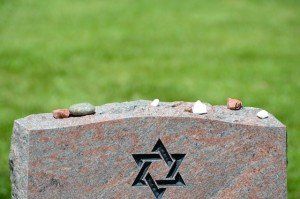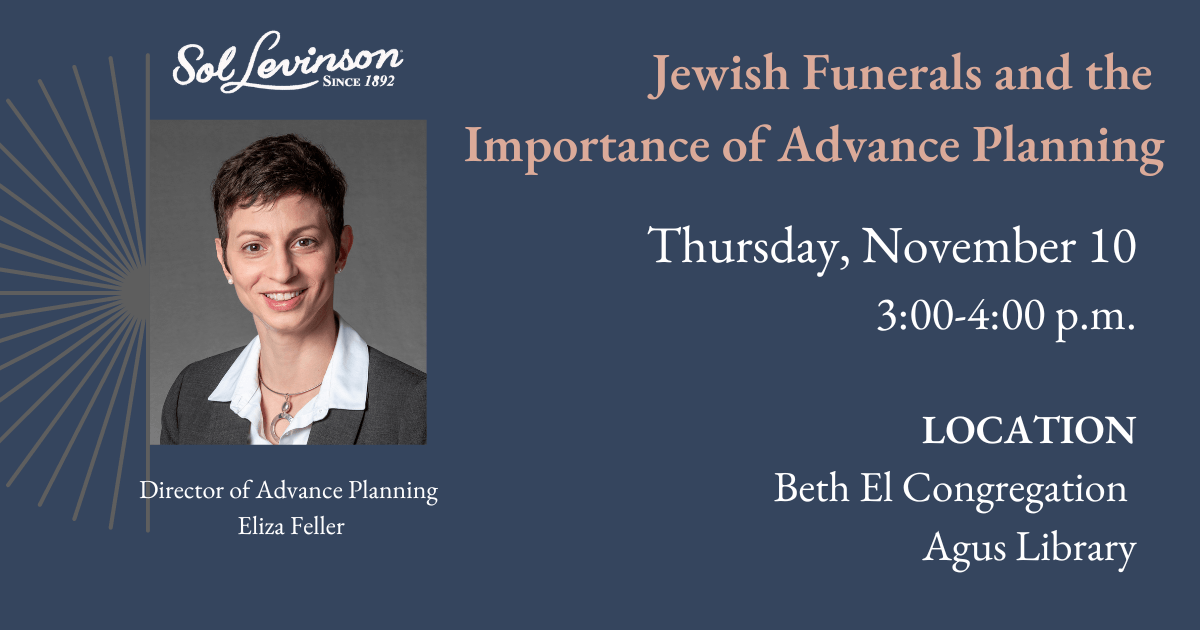


Greg King, Funeral Director, shared with us his reflections on the connections between the Passover holiday and a recent trip with The Associated to Israel: At the Passover season, as we sit with our families at the seder table, we are reminded, even fixated, on the struggle of the Jewish people … Continue reading →
At the Passover season, as we sit with our families at the seder table, we are reminded, even fixated, on the struggle of the Jewish people as slaves under Pharaoh. We consider how difficult it must have been under brutal, totalitarian rule. We reflect on how Moses repeatedly had to show Pharaoh the error of his ways until the unrelenting despot was shown, once and for all – as the Red Sea parted and then crashed in on him and his army – the overwhelming power of G-d. As well, we remember how Moses led them out of Egypt and into the desert only to roam for 40 years. However, discussed far less, if not almost completely forgotten, is that Passover is as much about a people as it is about the characters that make up the story. In fact, it is not just about the people but the journey these group-minded individuals took, and its purpose: to live in the Land of Israel as Jews.
A few weeks ago, along with roughly 20 men ages 32-42, my colleague, Matthew Levinson, and I embarked on a weeklong journey of our own to Israel, coordinated by The Associated. All of us live and work in the Baltimore metropolitan area, and all are Jewish husbands and fathers, but come from different backgrounds and different careers. Some of us had visited Israel in the past but many others had never been. Much like the ancient Israelites, we also had a purpose for travelling to Israel. Collectively, our journey – much less weighty than that of the Jews fleeing Pharaoh’s oppression – was meant to learn about Israel and what The Associated is doing to promote and support the Jewish homeland.
The trip was not your typical sightseeing tour of Israel. Instead of visiting classic Israeli historic sites like Masada or submerging ourselves in the Dead Sea, we were guided through extensive and enlightening tours of the Gaza border area and West Bank settlements by IDF experts whose decades-long careers were deeply enmeshed in the Israeli-Palestinian conflict. This afforded an amazing and different insight into a conflict so complex and layered it could only be truly understood through the optics provided by these experts. Through their perspective, we learned about the devastating effect of Hamas’ terrorist tunnel system and corrupt governance. As we physically walked parts of the Gaza border, I began to understand the importance of The Associated’s support of the city of Ashkelon, Baltimore’s sister city in Israel, which lies dangerously close to the Gaza border and has seen its share of Hamas rockets. While in Ashkelon, we met with a former collegiate lacrosse player from New York who has made Aliyah. He now captains the Israeli national lacrosse team and runs a program that teaches the sport to Israeli youth. We had the privilege to visit and play lacrosse with the kids that he teaches. Jacob, the founder and director of the program, has a goal to make lacrosse the Israeli national sport and to draw youth into the sport along the way. We were also taught to paddleboard in the Mediterranean Sea by instructors who volunteer with a program called HaGal Sheli, which teaches at-risk youth how to surf and then encourages them to apply those lessons in order to get them back into school with renewed confidence and life-skills. Another program supported by The Associated, called Project Leket, is designed to help support the National Food Bank. The Associated, along with other Jewish agencies, supports the farm, which grows food strictly for food donation programs. On this day, we picked oranges along with a group of engineers from Hewlett Packard. The oranges we picked will help feed over 250 families.
After a few days touring the Gaza border and the Makhtesh Ramon in the Negev Desert, our bus meandered through the Valley of Elah. It was here that David – choosing little armor, swift and nimble – slew the lumbering giant, Goliath. Our journey then took us on to the holy city of Jerusalem. Upon entering the ancient city, our first stop was Yad Vashem, Israel’s Holocaust memorial and museum. Here we were reminded of our all-too-recent tragic past and how essentially critical the existence of Israel is to the survival of the Jewish people. The Holocaust stands as a grievous yet poignant example of the dire need for agencies like The Associated, if not for any other reason, to continue its mission to aid and support Israel and the Jewish people as a whole.
As the week ended, I began to think about our own small journey and how it could possibly relate to Passover. More specifically, how can what we witnessed and learned be looked at through the lens of the Exodus? What I see is simple. The Jewish people, who fled slavery for what they saw as a better life, are not much different than the Jewish people who live in Israel today. Like the ancient Jewish people, Israelis today are willing to take the hard road. Living in Israel is not as easy as living here in the United States. Creature comforts abound in the U.S. In Israel you live with far less. As they fled Egypt, the Jewish people took very little, leaving behind most, if not all, of their possessions. As the Israelites journeyed through the desert, they met with many foes, constantly under threat from the different kingdoms and tribes they encountered along the way. In modern Israel military service is compulsory, maintaining a constant state of readiness as a people, to be ready to fight the existential threat that has loomed large since Israel’s very beginnings 70 years ago…and long before. The ancient Jews of antiquity travelled through the desert with a purpose. Their purpose was to reach the Land of Israel where they could be free to be Jews. The modern Israeli’s purpose is not too far removed from that original goal. Israelis sacrifice, living under a constant state of threat and awareness, and refuse to take no for an answer. The modern Israeli is willing to live under these conditions for a singular purpose just like the ancient Jewish people that travelled such a great distance so long ago through the Sinai; to live and preserve the Jewish life that has been promised to them for so many millennia.
However, this epic 40-year journey by a bedraggled group of former slaves could not have come to its conclusion without help along the way. The Torah discusses at length the divine assistance provided by G-d as the Jews travelled through the desert but, undoubtedly, if you believe that man is inherently good, the ancient sojourners were provided help along the way by regular people who saw an exhausted, starving, and desperate group that simply needed a helping hand. Maybe it was just offering shelter from the harsh desert heat. Possibly it was allowing access to an oasis that only a local resident would know existed. Whatever the act of chesed (lovingkindness) was, the Jewish people would have likely withered away in the desert had it not been for those acts of kindness to keep them hopeful and alive. We can point to innumerable examples since those ancient times when Jews have needed help to survive as a people. Today, we have organizations like The Associated whose mission is to help Jewish people every day. Whether it is a surfing program for at-risk youth in Tel Aviv, a youth lacrosse program for underprivileged children, a gleaning program to provide food for needy families, or an outreach program which seeks to bridge the divide between Jewish settlers and Palestinians, The Associated is helping Israelis fulfill the same purpose that the ancient Israelites intended. That purpose is still alive in Israel today. Just as those kind local desert dwellers must have assisted the Jews so desperately lost in the desert for 40 years, The Associated is helping people fulfill their own purpose in Israel and around the world.




*Restricted - operating out of Sol Levinson & Bros., Inc.